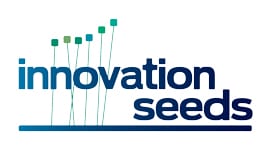Ensuring market uptake of environmental research remains a key challenge in greening the economy. The InnovationSeeds platform is designed to boost uptake of results and presents findings in a variety of areas, from water and waste management, to energy and resource efficiency.
Ensuring market uptake of environmental research remains a key challenge in greening the economy. The InnovationSeeds platform is designed to boost uptake of results and presents findings in a variety of areas, from water and waste management, to energy and resource efficiency.
Innovation for sustainable growth
The market for green technologies is a key growth area for European industry. According to the UK Department for Business, Innovation and Skills, the global market for environmental goods and services is around €4.2 trillion, with EU companies having a 21% share.
Ecological industry in Europe is growing at around 8% per year and currently employs around 3.4 million people. The sector encourages smart, sustainable and inclusive growth, with long term prospects in competitiveness.
Innovations in industry give not only new products and services, but more cost efficient business models and operations. Recent studies have shown that inefficient use of resources costs European industry €630 billion per year. Resource and energy efficiency can have huge savings for businesses. Greater resource efficiency can come from improved manufacturing processes, product re-design and optimisation of value chains; processes that can be encouraged by policy makers and by service providers.
Accelerating research uptake for market successes
Europe’s successes in environmental business development are often the result of leadership in environmental research areas. However, the commercialisation of publicly-funded results remains a bottleneck in the innovation process and there is untapped potential due to insufficient exploitation of research results.
Although excellent research produces excellent knowledge, knowledge does not automatically produce innovation. It can take many years for knowledge to result in innovative products and policies, dependent on the emergence of a critical mass of knowledge.
Even then, support is often needed to bring research to the market. Connections need to be created between the worlds of research and business, and researchers often need help to create business plans, locate funding and raise awareness of the potential of their findings.
Maximising the value of environmental research
The InnovationSeeds platform seeks to build awareness of environmental research results and highlight market potentials by presenting the results of over 100 EU-funded research projects. The platform helps research teams, policy-makers, technology users and business leaders tap into cutting-edge research to help boost Europe’s environmental performance.
Research results are presented in the Virtual Library, where they are described in an open and understandable manner, using functional descriptions and classifying them according to commercial maturity. This maturity classification uses the Technology-Readiness-Level (TRL) scale. For example, mature environmental solutions ready for immediate market introduction, are classified as TRL 9 solutions. The portal currently features over 40 such results.
InnovationSeeds also features an intelligent navigation system guiding SMEs to the most appropriate public and private funding for eco-innovation projects. Funding opportunities can be filtered by type of instrument, use of fund and regional application.
Presenting results that are ready for uptake
Eco-innovative R&D results are not only communicated through the virtual library, but also through news articles, webinars and video releases, supported by social media and brokerage events. InnovationSeeds resents research in the most engaging and informative way possible:
- Researchers at the Flanders’ Mechatronics Technology Centre (FMTC) have developed a robot that is able to play badminton against a human opponent, to test software for monitoring energy use. The software – which found savings of 50% in the robot – is now being used in manufacturing companies to improve the efficiency of their production lines. In the future, engineers could use the software to determine the efficiency of machines before they are even built, giving a boost to industrial competitiveness.
- The EU funded project CAPS is working on the conversion of paper mill sludge into an absorbent material that can be used to clean up oil and chemical spills. Nearly 18 megatonnes of paper mill sludge is produced in the EU each year, making the widely available material cheaper than synthetic alternatives. After successful testing, Finland and several South American countries have expressed interest in starting their own production of the paper mill sludge absorbent.
- Food packaging is an excessively wasteful area, with packaging intended for one-time, limited use. The EU-funded project ECOBIONET has developed compostable netting for fruit, vegetables and other food stuffs. Currently, food netting is made from polyethylene which degrades slowly, is difficult to separate from organic waste when disposed of, and challenging to recycle due to its structure. A compostable alternative could have huge impact in terms of limiting incineration and landfilling of plastic waste.
Building an eco-innovation community of practice
InnovationSeeds builds the first dedicated eco-innovation community of practice of its kind by connecting policy makers, engineers and businesses together to boost Europe’s performance in the growing green sector. Moreover, the project uses social networking tools to promote and foster a broad-based eco-innovation community. Become a member of the community at www.innovationseeds.eu or join the conversation on Twitter or on LinkedIn.

InnovationSeeds (official project name ‘ECO-PRO’) is supported by the European Commission under the Seventh Framework Programme and co-ordinated by Greenovate! Europe. For more information, please contact Katharina Krell